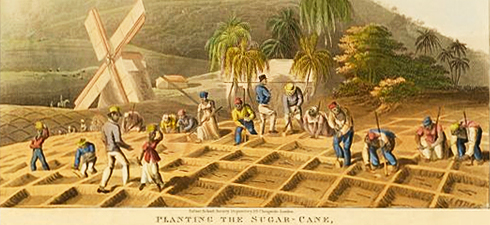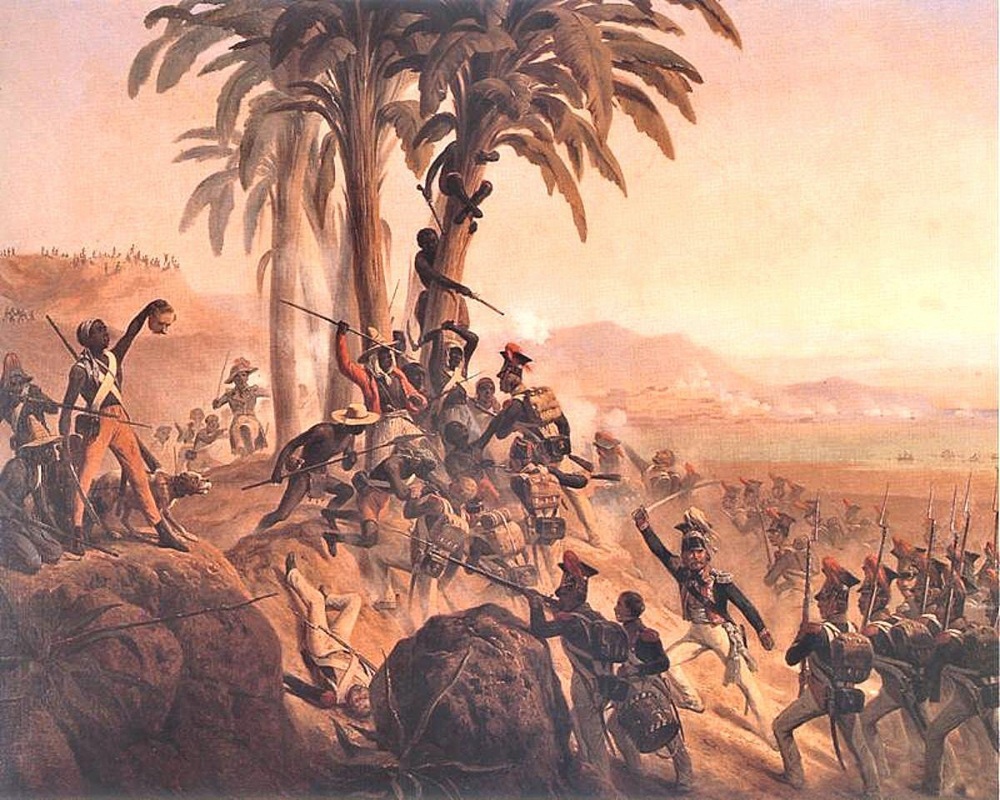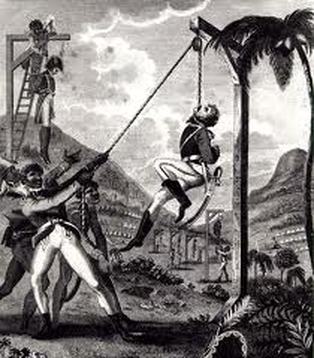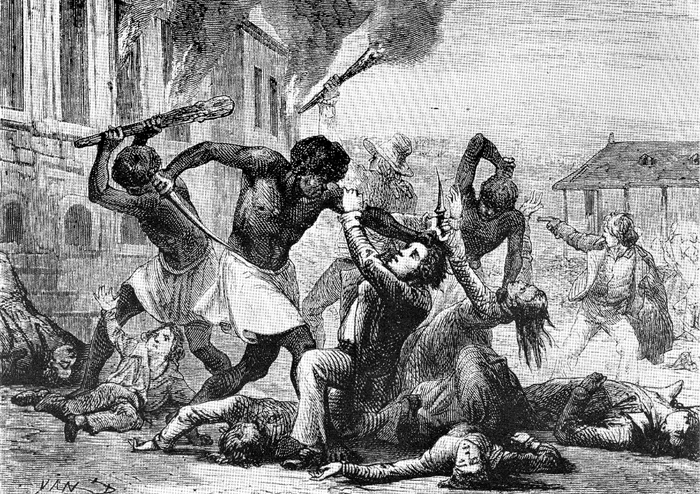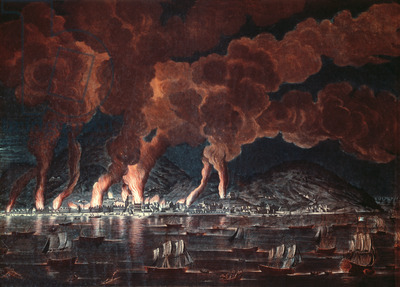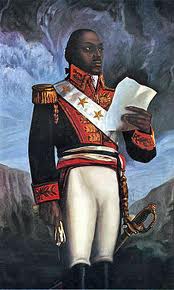The Basic Gist
Lauren Ellsworth, Sarah Babbie
Setting the Stage
Before the revolution, the French Caribbean colony of Saint Domingue (soon to become Haiti) was essentially the richest colony in the world. Some 8,000 plantations produced about 40 of the world’s sugar and about half of its coffee. The colony was run on slave labor and made up most of the population (500,000 slaves, 400,000 whites). The people were sharply divided between the extremely wealthy plantation owners, merchants, and lawyers and what was known as the petits blancs (“poor whites”). Another social group was those of mixed race background. Given its enormous inequalities among the wealthy and poor and the vast amount of slave labor, a revolution was easily set off when news of the French Revolution reached them.
Time Frame and Overview
The Haitian slave rebellion began 1791 with a group of slaves killing their master, word of this spread and it grew. The rebellion did not end until 1804, making this a 13 year long rebellion. This places the revolution after the French as well as the American, the ideas of both of those being similar to this.
The Haitian Revolution was almost like two revolutions: one for the whites fighting off colonial rule and then a slave one that engulfed the entire thing. The entire process was very bloody and very much inspired by the French Revolution. Artwork below gives some very accurate depictions of the violence and uproar.
The Haitian Revolution was almost like two revolutions: one for the whites fighting off colonial rule and then a slave one that engulfed the entire thing. The entire process was very bloody and very much inspired by the French Revolution. Artwork below gives some very accurate depictions of the violence and uproar.
|
|
Causes
The main reasons for the revolution in Haiti were these inequalities and the exploitation of the poor, much like some of the central reasons for the French revolution. The gap in wealth caused the petits blancs to call for equality. The ideas and example of the French revolution quickly ignited the already sensitive situation in the colony. Also, the massive slave labor force and the conditions therein also started a series of slave revolts.
Significant Peoples
Haiti was a colony of France greatly divided into race, black and white, and into classes, rich and poor. All of the colored people in Haiti were lower classed, but not all of the people in the lower class were colored. The issue arose that when the revolution started, all people who were white were at risk of becoming victims. The black Haitians were being converted from using their voodoo ways into Christianity, which was less than advantageous because it led to the people having more unrest.
|
Some significant black people of the revolution were Toussaint Louverture, he was the main force and eventually was the person who led Haiti into being a self governing black state, completely handled by the people who used to be slaves. He was the main military commander, eventually making himself a governor for life until he was deported by Napoleon in 1803. Another man involved in this was Jean-Jacques Dessalines, he led under Louverture and defeated Napoleon in the Battle of Vertieres. He was the one who officially made Haiti a country and made himself emperor. In a manner reminiscent of Ceasar, he was assassinated soon after. Another main leader was Henri Christophe, he took part in the invasion of Santo Domingo and was elected as President of Haiti after the assassination of Dessalines. This turned into him making himself King. This is just one way in which the Haitian Revolution may have succeeded in some goals, but in the end failed to create a true Republic. Monarchy took over again anyways.
|
Some of the white people who were significant were the rich white people as well as Napoleon. The Haitian people took advantage of the turmoil France was in immediately after and used that to really kick start it. When Napoleon took charge, he wanted to quell the rebellion because of how much money the French people were bringing in from the cash crops Haiti produced. He led a French force in to try to stop it, but this was eventually defeated. Charles Leclerc was another main military member, he was Napoleon's brother in law who wanted to assist in in taking back Haiti, he was driven off of the island by Dessalines soon after.
Post Revolution
The newly-formed Haitian government attempted to incorporate many enlightenment ideals. One of which is that the government should be responsible of taking care of those that need it most. The government should also be popularly run, or at least run with the people’s best interest as defined by them. The revolution also marked a huge leap in social progress, it being the only successful slave rebellion in history. Haiti was also the first country to be ruled by blacks. Equality is an obvious ideal implemented by the young haitian government. Slavery was abolished, and blacks and whites had the same rights as each other. As discussed, seeing as Toussaint Louverture made himself a king, many Enlightenment ideas that were in existence actually did not live on after the Revolution. However, it was nonetheless a "successful" revolution in that it resulted in Independence and the founding of a new state.
Overall, the revolution culminated in the abolition of slavery, making it the only successful slave revolution in history that led to the foundation of a state, in this case the Haitian Republic. It was also one of two successful attempts to gain Independence from it's European mother country (the other being the American revolution). However, although an independent government was created in Haiti, its society continued to be deeply affected by the patterns established under French colonial rule. The French established a system of minority rule over the illiterate poor by using violence and threats.
Overall, the revolution culminated in the abolition of slavery, making it the only successful slave revolution in history that led to the foundation of a state, in this case the Haitian Republic. It was also one of two successful attempts to gain Independence from it's European mother country (the other being the American revolution). However, although an independent government was created in Haiti, its society continued to be deeply affected by the patterns established under French colonial rule. The French established a system of minority rule over the illiterate poor by using violence and threats.
